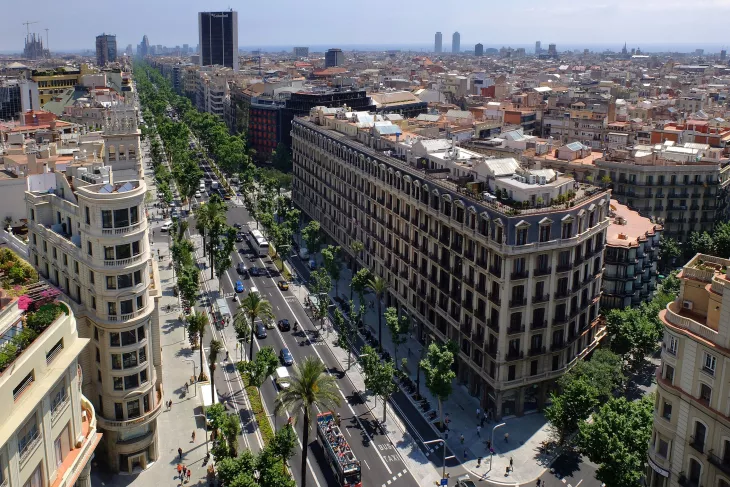Where to live

If you've chosen Barcelona as the place to study, work or create your own business and life project but haven’t yet decided which neighbourhood to live in, we can give you advice on that.
Our city is divided up into 10 districts and 73 neighbourhoods. You will find information on each district’s features on Living in the neighbourhood.
Barcelona has many charming neighbourhoods and each has its own features making it unique and special. Barcelona’s residents are strongly attached to the neighbourhood they live in and many play an active part in their neighbourhood’s social and community life.
In general, you will find blocks of buildings in Barcelona with multi-family dwellings, and the flats are not very spacious. People usually socialise outside their homes. The good climate helps, of course.
If it’s a single-family house you are after, whether detached or semi-detached, with a garden, for example, you will find one mainly in several of the Barcelona metropolitan area’s residential zones.
These include, owing to their popularity for establishing residences among foreign-national families, Sant Just Desvern and Esplugues, inland; Castelldefels, Gavà and Sitges, on the southern coast and, in the north, several municipalities from the El Maresme county.
Thanks to the metropolitan public transport system, you can travel from the centre of Barcelona to other nearby cities within a relatively short time.
Temporary accommodation
You will need provisional accommodation while you look for the house you most like and which best suits you. You have many alternatives, but Barcelona is very popular as a destination city for international getaways and meetings, from medical conferences to video-game fairs. So it’s best to plan in advance, before you come here.
There are hotels, boarding houses and aparthotels, in every price range, where you can stay while you focus on looking for a flat. Likewise, if you’re thinking about holiday travel, you will find good prices by booking two or three months in advance. There are many categories of hotels and prices to suit every budget. Large and small chains, domestic and international, have buildings throughout the city.
There are budget hotels, such as a pension or a boarding house; the latter, called “hostal”, should not be confused with the English concept of hostel. Pensions and boarding houses are modest hotels, usually an informal family business. They have their own three-star classification system. They are quality accommodation at a reduced price, as they offer fewer services. Aparthotels are furnished apartments for both short-term and long-term stays: they have a kitchen and other commodities. A good solution for families and groups.


